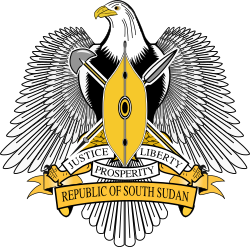Background
Work on a transitional constitution began on 21 January 2011 with the formation of a technical review committee, empowered by presidential decree, to amend the 2005 Interim Constitution of Southern Sudan. After the January 2011 referendum in favour of secession, the ruling Sudan People's Liberation Movement (SPLM) and various opposition political parties broadly agreed on the need to adopt a transitional constitution based on the ICOSS and tailored to the enhanced powers and responsibilities of a sovereign state. [1]
From the outset, the drafting process has been limited to a technical review of the ICOSS that would delete all references to a united Sudan and re-cast existing government structures in the south at a regional level as the institutions of a sovereign nation-state. Shortly before Independence, the then GoSS Minister of Legal Affairs and Constitutional Development, Mr John Luk Jok, chairperson of the technical constitutional review committee said that a second phase of the Constitutional review process would get underway after Independence. [1]
In April 2011, the technical review committee presented its recommendations on the transitional constitution to the office of the Southern Sudanese presidency, along with its proposals for the making of a permanent political charter. [1]
This page is based on this
Wikipedia article Text is available under the
CC BY-SA 4.0 license; additional terms may apply.
Images, videos and audio are available under their respective licenses.
